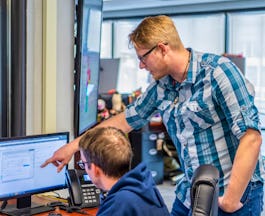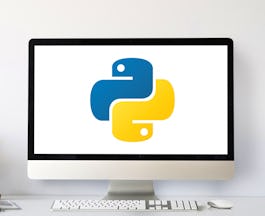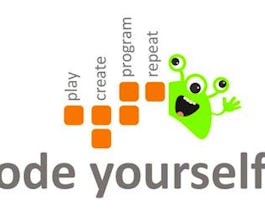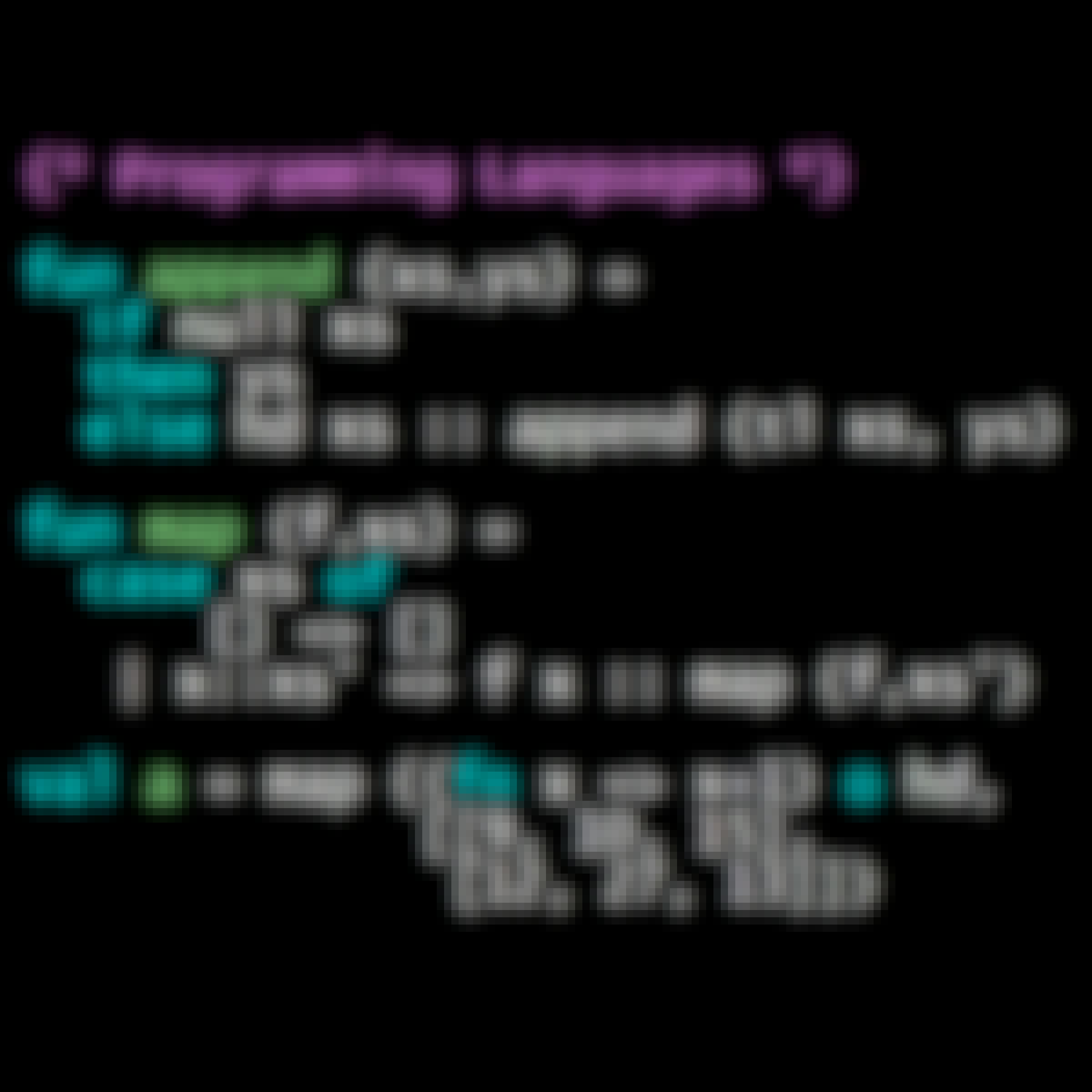Filter by
The language used throughout the course, in both instruction and assessments.
3,062 results for "programming"
 Status: Free
Status: FreePrinceton University
Skills you'll gain: Computer Programming, Java Programming, Programming Principles, Computational Thinking, Algorithms, Computational Logic, Theoretical Computer Science, Critical Thinking, Mathematical Theory & Analysis, Problem Solving, Computer Science

Google
Skills you'll gain: Computer Programming, Data Structures, Problem Solving, Python Programming
 Status: Free
Status: FreeUniversity of Toronto
Skills you'll gain: Computer Programming, Python Programming, Computational Logic, Problem Solving, Programming Principles, Computer Programming Tools, Critical Thinking, Computational Thinking, Algorithms, Mathematics

Duke University
Skills you'll gain: Computer Programming, Java Programming, Programming Principles, Algorithms, Problem Solving, Data Structures, Software Engineering, Computer Programming Tools, Critical Thinking, Computational Thinking, Data Analysis, Javascript, Software Testing, Front-End Web Development, HTML and CSS, Web Design, Web Development, Web Development Tools, Computer Graphic Techniques, Software Architecture, Data Model, Cryptography, Data Analysis Software, Strategy

Skills you'll gain: Python Programming, Computer Programming, Data Analysis
 Status: Free
Status: FreeThe University of Edinburgh
Skills you'll gain: Algorithms, Computer Programming, Problem Solving, Computer Graphics, Creativity, Decision Making, Programming Principles, Computer Programming Tools, Other Programming Languages, System Programming

Duke University
Skills you'll gain: Algorithms, C Programming Language Family, Computational Logic, Computer Programming, Critical Thinking, Problem Solving, Process Analysis, Programming Principles, Data Visualization, Theoretical Computer Science
 Status: Free
Status: FreeUniversity of Washington
Skills you'll gain: Computer Programming, Programming Principles, Algorithms, Critical Thinking

Skills you'll gain: Cloud Computing, Cloud Applications, IBM Cloud, Cloud Infrastructure, DevOps, Cloud Platforms, Computer Programming, Javascript, Python Programming, Cloud Management, Web Development, Software Architecture, Application Development, Cloud API, Cloud-Based Integration, Software Engineering, Continuous Delivery, Microarchitecture, Cloud Storage, Continuous Integration, Full-Stack Web Development, Software As A Service, Docker (Software), Kubernetes, Software Engineering Tools, Software Testing, Django (Web Framework), NoSQL, SQL, Collaboration, Computer Science, Data Analysis, Front-End Web Development, Leadership and Management, Mergers & Acquisitions, React (web framework)

University of California, Santa Cruz
Skills you'll gain: C Programming Language Family, Computer Programming, Programming Principles, Algorithms, Data Structures, C++ Programming, Computational Logic, Computer Programming Tools, Computational Thinking, Critical Thinking, Mathematics, Problem Solving, Graph Theory, Software Engineering

Duke University
Skills you'll gain: Python Programming, Computer Programming, C Programming Language Family, Algorithms, Computational Logic, Critical Thinking, Problem Solving, Process Analysis, Programming Principles, Computer Programming Tools, Data Visualization, Theoretical Computer Science, Computational Thinking, Software Testing, Writing, Software Engineering, User Experience

University of Michigan
Skills you'll gain: Computer Programming, Python Programming, Computer Programming Tools, Programming Principles, Data Structures, Computational Thinking, Computational Logic, Data Analysis, Software Engineering, Algorithms, Critical Thinking, Problem Solving, Data Architecture, Data Management, Databases, Theoretical Computer Science, Database Administration, Data Model, Data Visualization, Database Design, Database Theory, Network Architecture, Web Development, Web Development Tools, Computer Networking, SQL, HTML and CSS
In summary, here are 10 of our most popular programming courses
- Computer Science: Programming with a Purpose: Princeton University
- Crash Course on Python: Google
- Learn to Program: The Fundamentals: University of Toronto
- Java Programming and Software Engineering Fundamentals: Duke University
- Python for Data Science, AI & Development: IBM
- Code Yourself! An Introduction to Programming: The University of Edinburgh
- Programming Fundamentals: Duke University
- Programming Languages, Part A: University of Washington
- IBM Full Stack Software Developer: IBM
- Coding for Everyone: C and C++: University of California, Santa Cruz










